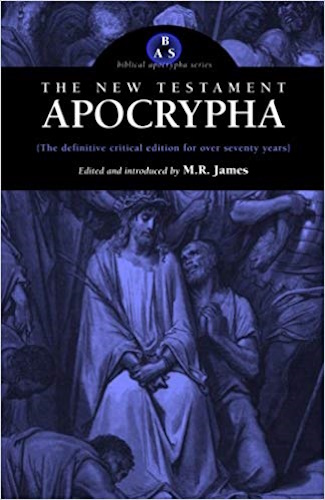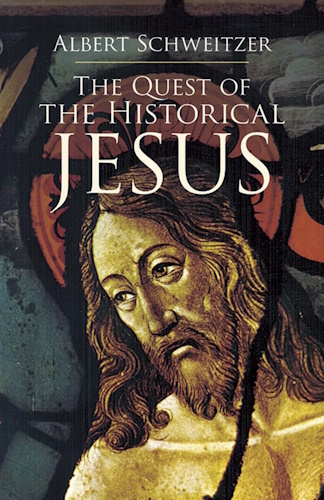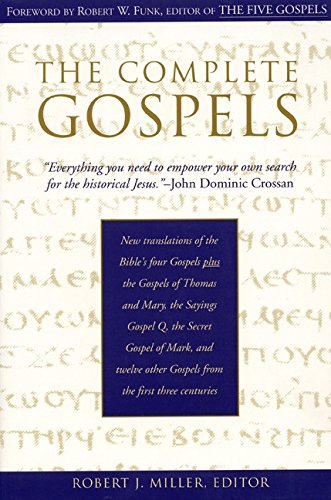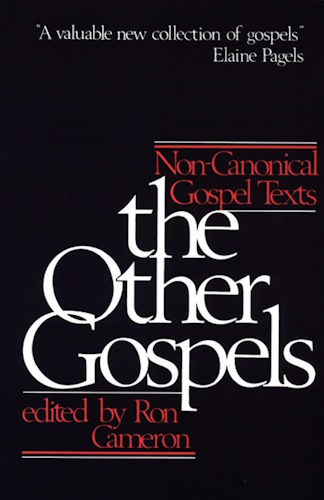
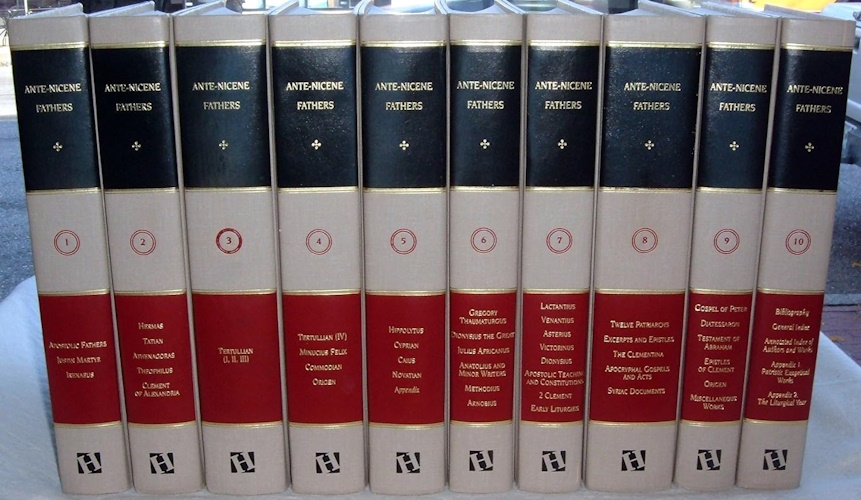
The Pastor of Hermas
Book Third-Similitudes
Similitude Fifth
From: Early Church Fathers 38 Volumes
Ante-Nicene Fathers: The Writings of the Fathers down to a.d. 325 Vol. II
edited by
Rev. Alexander Roberts, D.D., and James Donaldson, LL.D.
Translated by the Rev. F. Crombie, M.A.
The Pastor of Hermas
SIMILITUDE FIFTH.
Of True Fasting and Its Reward: Also of Purity of Body.
CHAP. I.
While fasting and sitting on a certain mountain, and giving thanks to the Lord for all His dealings with me, I see the Shepherd sitting down beside me, and saying, "Why have you come hither [so] early in the morning?" "Because, sir," I answered, "I have a station."263 "What is a station?" he asked. "I am fasting, sir," I replied. "What is this fasting," he continued, "which you are observing?" "As I have been accustomed, sir," I reply, "so I fast." "You do not know," he says, "how to fast unto the Lord: this useless fasting which you observe to Him is of no value." "Why, sir," I answered, "do you say this?" "I say to you," he continued, "that the fasting which you think you observe is not a fasting. But I will teach you what is a full and acceptable fasting to the Lord. Listen," he continued: "God does not desire such an empty fasting.264 For fasting to God in this way you will do nothing for a righteous life; but offer to God a fasting of the following kind: Do no evil in your life, and serve the Lord with a pure heart: keep His commandments, walking in His precepts, and let no evil desire arise in your heart; and believe in God. If you do these things, and fear Him, and abstain from every evil thing, you will live unto God; and if you do these things, you will keep a great fast, and one acceptable before God."
CHAP. II.
"Hear the similitude which I am about to narrate to you relative to fasting. A certain man had a field and many slaves, and he planted a certain part of the field with a vineyard,265 and selecting a faithful and beloved and much valued slave, he called him to him, and said, 'Take
page 34
this vineyard which I have planted, and stake266 it until I come, and do nothing else to the vineyard; and attend to this order of mine, and you shall receive your freedom from me.' And the master of the slave departed to a foreign country. And when he was gone, the slave took and staked the vineyard; and when he had finished the staking of the vines, he saw that the vineyard was full of weeds. He then reflected, saying, 'I have kept this order of my master: I will dig up the rest of this vineyard, and it will be more beautiful when dug up; and being free of weeds, it will yield more fruit, not being choked by them.' He took, therefore, and dug up the vineyard, and rooted out all the weeds that were in it. And that vineyard became very beautiful and fruitful, having no weeds to choke it. And after a certain time the master of the slave and of the field returned, and entered into the vineyard. And seeing that the vines were suitably supported on stakes, and the ground, moreover, dug up, and all the weeds rooted out, and the vines fruitful, he was greatly pleased with the work of his slave. And calling his beloved son who was his heir, and his friends who were his councillors, he told them what orders he had given his slave, and what he had found performed. And they rejoiced along with the slave at the testimony which his master bore to him. And he said to them, 'I promised this slave freedom if he obeyed the command which I gave him; and he has kept my command, and done besides a good work to the vineyard, and has pleased me exceedingly. In return, therefore, for the work which he has done, I wish to make him co-heir with my son, because, having good thoughts, he did not neglect them, but carried them out.' With this resolution of the master his son and friends were well pleased, viz., that the slave should be co-heir with the son. After a few days the master made a feast,267 and sent to his slave many dishes from his table. And the slave receiving the dishes that were sent him from his master, took of them what was sufficient for himself, and distributed the rest among his fellow-slaves. And his fellow-slaves rejoiced to receive the dishes, and began to pray for him, that he might find still greater favour with his master for having so treated them. His master heard all these things that were done, and was again greatly pleased with his conduct. And the master again calling together his friends and his son, reported to them the slave's proceeding with regard to the dishes which he had sent him. And they were still more satisfied that the slave should become co-heir with his son."
CHAP. III.
I said to him, "Sir, I do not see the meaning of these similitudes, nor am I able to comprehend them, unless you explain them to me." "I will explain them all to you," he said, "and whatever I shall mention in the course of our conversations I will show you. [Keep the commandments of the Lord, and you will be approved, and inscribed amongst the number of those who observe His commands.] And if you do any good beyond what is commanded by God,268 you will gain for yourself more abundant glory, and will be more honoured by God than you would otherwise be. If, therefore, in keeping the commandments of God, you do, in addition, these services, you will have joy if you observe them according to my command." I said to him, "Sir, whatsoever you enjoin upon me I will observe, for I know that you are with me." "I will be with you," he replied, "because you have such a desire for doing good; and I will be with all those," he added, "who have such a desire. This fasting," he continued, "is very good, provided the commandments of the Lord be observed. Thus, then, shall you observe the fasting which you intend to keep.269 First of all,270 be on your guard against every evil word, and every evil desire, and purify your heart from all the vanities of this world. If you guard against these things, your fasting will be perfect. And you will do also as follows.271 Having fulfilled what is written, in the day on which you fast you will taste nothing but bread and water; and having reckoned up the price of the dishes of that day which you intended to have eaten, you will give it to a widow, or an orphan, or to some person in want, and thus you will exhibit humility of mind, so that he who has received benefit from your humility may fill his own soul, and pray for you to the Lord. If you observe fasting, as I have commanded you, your sacrifice
page 35
will be acceptable to God, and this fasting will be written down; and the service thus performed is noble, and sacred, and acceptable to the Lord. These things, therefore, shall you thus observe with your children, and all your house, and in observing them you will be blessed; and as many as hear these words and observe them shall be blessed; and whatsoever they ask of the Lord they shall receive."
CHAP. IV.
I prayed him much that he would explain to me the similitude of the field, and of the master of the vineyard, and of the slave who staked the vineyard, and of the stakes, and of the weeds that were plucked out of the vineyard, and of the son, and of the friends who were fellow-councillors, for I knew that all these things were a kind of parable. And he answered me, and said, "You are exceedingly persistent272 with your questions. You ought not," he continued, "to ask any questions at all; for if it is needful to explain anything, it will be made known to you." I said to him, "Sir, whatsoever you show me, and do not explain, I shall have seen to no purpose, not understanding its meaning. In like manner, also, if you speak parables to me, and do not unfold them, I shall have heard your words in vain." And he answered me again, saying, "Every one who is the servant of God, and has his Lord in his heart, asks of Him understanding, and receives it, and opens up every parable; and the words of the Lord become known to him which are spoken in parables.273 But those who are weak and slothful in prayer, hesitate to ask anything from the Lord; but the Lord is full of compassion, and gives without fail to all who ask Him. But you, having been strengthened by the holy Angel,274 and having obtained from Him such intercession, and not being slothful, why do not you ask of the Lord understanding, and receive it from Him?" I said to him, "Sir, having you with me, I am necessitated to ask questions of you, for you show me all things, and converse with me; but if I were to see or hear these things without you, I would then ask the Lord to explain them."
CHAP. V.
"I said to you a little ago," he answered, "that you were cunning and obstinate in asking explanations of the parables; but since you are so persistent, I shall unfold to you the meaning of the similitudes of the field, and of all the others that follow, that you may make them known to every one.275 Hear now," he said, "and understand them. The field is this world; and the Lord of the field is He who created, and perfected, and strengthened all things; [and the son is the Holy Spirit;276] and the slave is the Son of God; and the vines are this people, whom He Himself planted; and the stakes are the holy angels of the Lord, who keep His people together; and the weeds that were plucked out of the vineyard are the iniquities of God's servants; and the dishes which He sent Him from His table are the commandments which He gave His people through His Son; and the friends and fellow-councillors are the holy angels who were first created; and the Master's absence from home is the time that remains until His appearing." I said to him, "Sir, all these are great, and marvellous, and glorious things. Could I, therefore," I continued, "understand them? No, nor could any other man, even if exceedingly wise. Moreover," I added, "explain to me what I am about to ask you." "Say what you wish," he replied. "Why, sir," I asked, "is the Son of God in the parable in the form of a slave?"
CHAP. VI.
"Hear," he answered: "the Son of God is not in the form277 of a slave, but in great power and might." "How so, sir?" I said; "I do not understand." "Because," he answered, "God planted the vineyard, that is to say, He created the people, and gave them to His Son; and the Son appointed His angels over them to keep them; and He Himself purged away their sins, having suffered many trials and undergone many labours, for no one is able to dig without labour and toil. He Himself, then, having purged away the sins of the people, showed them the paths of life278 by giving them the law which He received from His Father. [You see," he said, "that He is the Lord of the people, having received all authority from His Father.279] And why the Lord took His Son as councillor, and the glorious angels, regarding the heirship of the slave, listen. The holy, pre-existent Spirit, that created every creature, God made to dwell in flesh, which He chose.280 This flesh, accordingly, in which the Holy Spirit dwelt, was nobly subject to that Spirit, walking religiously
page 36
and chastely, in no respect defiling the Spirit; and accordingly, after living281 excellently and purely, and after labouring and co-operating with the Spirit, and having in everything acted vigorously and courageously along with the Holy Spirit, He assumed it as a partner with it. For this conduct282 of the flesh pleased Him, because it was not defiled on the earth while having the Holy Spirit. He took, therefore, as fellow-councillors His Son and the glorious angels, in order that this flesh, which had been subject to the body without a fault, might have some place of tabernacle, and that it might not appear that the reward [of its servitude had been lost283], for the flesh that has been found without spot or defilement, in which the Holy Spirit dwelt, [will receive a reward284]. You have now the explanation285 of this parable also."
CHAP. VII.
"I rejoice, sir," I said, "to hear this explanation." "Hear," again he replied: "Keep this flesh pure and stainless, that the Spirit which inhabits it may bear witness to it, and your flesh may be justified. See that the thought never arise in your mind that this flesh of yours is corruptible, and you misuse it by any act of defilement. If you defile your flesh, you will also defile the Holy Spirit; and if you defile your flesh [and spirit], you will not live."286 "And if any one, sir," I said, "has been hitherto ignorant, before he heard these words, how can such a man be saved who has defiled his flesh?" "Respecting former sins287 of ignorance," he said, "God alone is able to heal them, for to Him belongs all power. [But be on your guard now, and the all-powerful and compassionate God will heal former transgressions288], if for the time to come you defile not your body nor your spirit; for both are common, and cannot be defiled, the one without the other: keep both therefore pure, and you will live unto God."
263 [This anachronism betrays the later origin of "The Pastor." The Pauline Hermas would not have used this technical term. These fasts were very early fixed by canon for Wednesdays and Fridays. See Canon lxix. of canons called "Apostolical;" also Bingham, book xiii. cap. 9, and this volume, p. 34, note 4.]
264 [See cap. iii. of this similitude.]
265 The Vatican adds, "for his successors."
266 i.e., attach the vines to stakes.
267 The Vatican adds, "Having called together his friends." [The gospel parables of the vineyard, and of the sower, and of the man travelling into a far country, are here reflected passim. I cannot but refer to a parable which greatly resembles this, and is yet more beautiful, occurring in Mrs. Sherwood's Stories on the Catechism (Fijou), a book for children. It is not unworthy of Bunyan.]
268 [To read into this passage the idea of "supererogatory merit" is an unpardonable anachronism. (Compare Command. iv. 4.) The writer everywhere denies human merit, extols mercy, and imputes good works to grace. He has in view St. Paul's advice (1 Cor. vii. 25–28), or our blessed Lord's saying (Matt. xix. 12). The abuse of such Scriptures propped up a false system (2 Pet. iii. 16) after it had been invented by Pelagians and monastic enthusiasts. But it has no place in the mind of Hermas, nor in the mind of Christ.]
269 [Thus he does not object to the "station," if kept with evangelical acts of devotion and penitence. Isa. lviii. 5–8.]
270 Pseudo-Athanasius gives this paragraph as follows: "First of all be on your guard to fast from every evil word and evil report, and purify your heart from every defilement and revenge, and base covetousness. And on the day on which you fast, be content with bread, and herbs, and water, giving thanks to God. And having calculated the amount of the cost of the meal which you intended to have eaten on that day, give it to a widow, or an orphan, or to some one in want, so that, having clearly filled his own soul, he shall pray to the Lord on your behalf. If you therefore perform your fasting as I enjoined you, your sacrifice will be acceptable before the Lord, and inscribed in the heavens in the day of the requital of the good things that have been prepared for the righteous."
271 [Note this detailed account of primitive fasting (2 Cor. vi. 5, ix. 27, xi. 27). Amid all the apostle's sufferings and dying daily, he adds fastings to involuntary hunger and thirst.]
272 Literally, "self-willed." (αὐθάδης).
273 [Matt. xiii. 11; Jas. i. 5.]
275 [Part of the commission again.]
276 This clause occurs only in the Vatican. It does not occur in Lips., Pal., or in the Æth.
277 [Phil. ii. 7. But no longer is He such.]
279 The sentence in brackets is omitted in Lips. And Æth., occurs in Vat. And Pal.
280 This passage varies in each of the forms in which it has come down, and is corrupt in most, if not in all. The Vatican (Lat.) has, "Because the messenger hears the Holy Spirit, which was the first of all that was poured (infusus) into a body in which God might dwell. For understanding (intellectus) placed it in a body as seemed proper to Him." The Pal. reads: "For that Holy Spirit which was created pure [first] of all in a body in which it might dwell, God made and appointed a chosen body which pleased Him." The Æth. reads: "The Holy Spirit, who created all things, dwelt in a body in which He wished to dwell." [See Grabe's collation and emendation here, in Wake's translation.]
281 The Vatican renders this sentence: "This body, therefore, into which the Holy Spirit was led, was subject to that Spirit, walking rightly, modestly, and chastely, and did not at all defile that Spirit. Since, then, that body had always obeyed the Holy Spirit, and had laboured rightly and chastely with it, and had not at any time given way, that wearied body passed its time as a slave; but having strongly approved itself along with the Holy Spirit, it was received unto God." The Palatine is similar. The Æth. reads: "That body served well in righteousness and purity, nor did it ever defile that Spirit, and it became His partner, since that body pleased God."
282 πορεία. Vatican, potens cursus.
283 The passages within brackets are omitted by Lips. and Æth.
284 The passages within brackets are omitted by Lips. and Æth.
285 [If the reader feels that the explanation itself needs to be explained, let him attribute it to the confused and inaccurate state of the text. Grabe says emphatically, that "the created Spirit of Christ as a man and not the Holy Ghost, the third person of the Trinity," is spoken of in this chapter chiefly. The apparent confusion of words and phrases must be the result of ignorant copying. It is a sufficient answer to certain German critics to cite the providential approval of Athanasius, a fact of the utmost moment. Nobody doubts that Athanasius was sensitive to any discoloration of the Nicene Faith. In the text of Hermas, therefore, as it was in his copy, there could have been nothing heretical, or favouring heresy. That Hermas was an artist, and purposely gave his fiction a very primitive air, is evident. He fears to name the Scriptures he quoted, lest any one should doubt their use, in the days of Clement, in the Western churches.]
286 [1 Cor. iii. 16, 17. Owen, On the Spirit, passim. Ambiguities, cap. ii.]
287 [Acts xvii. 30.]
288 Omitted in Lips. Æth. has simply, "But be on your guard now."
The Pastor of Hermas - Book Third.—Similitudes.
Similitude Fifth..
Of True Fasting and Its Reward: Also of Purity of Body.
![]()
![]()
-
Urantia Book, 44:0.11 - The Celestial Artisans
Never in your long ascendancy will you lose the power to recognize your associates of former existences. Always, as you ascend inward in the scale of life, will you retain the ability to recognize and fraternize with the fellow beings of your previous and lower levels of experience. Each new translation or resurrection will add one more group of spirit beings to your vision range without in the least depriving you of the ability to recognize your friends and fellows of former estates.
-
Princess Bride 1987 Wallace Shawn (Vizzini) and Mandy Patinkin (Inigo Montoya)
Vizzini: HE DIDN'T FALL? INCONCEIVABLE.
Inigo Montoya: You keep using that word. I do not think it means what you think it means. -
Urantia Book, 117:4.14 - The Finite God
And here is mystery: The more closely man approaches God through love, the greater the reality -- actuality -- of that man. The more man withdraws from God, the more nearly he approaches nonreality -- cessation of existence. When man consecrates his will to the doing of the Father's will, when man gives God all that he has, then does God make that man more than he is.
-
Urantia Book, 167:7.4 - The Talk About Angels
"And do you not remember that I said to you once before that, if you had your spiritual eyes anointed, you would then see the heavens opened and behold the angels of God ascending and descending? It is by the ministry of the angels that one world may be kept in touch with other worlds, for have I not repeatedly told you that I have other sheep not of this fold?"
-
Urantia Book, Foreword - 0:12.12 - The Trinities
But we know that there dwells within the human mind a fragment of God, and that there sojourns with the human soul the Spirit of Truth; and we further know that these spirit forces conspire to enable material man to grasp the reality of spiritual values and to comprehend the philosophy of universe meanings. But even more certainly we know that these spirits of the Divine Presence are able to assist man in the spiritual appropriation of all truth contributory to the enhancement of the ever-progressing reality of personal religious experience—God-consciousness.
-
Urantia Book, 1:4.3 - The Mystery Of God
When you are through down here, when your course has been run in temporary form on earth, when your trial trip in the flesh is finished, when the dust that composes the mortal tabernacle "returns to the earth whence it came"; then, it is revealed, the indwelling "Spirit shall return to God who gave it." There sojourns within each moral being of this planet a fragment of God, a part and parcel of divinity. It is not yet yours by right of possession, but it is designedly intended to be one with you if you survive the mortal existence.
-
Urantia Book, 1:4.1 - The Mystery Of God
And the greatest of all the unfathomable mysteries of God is the phenomenon of the divine indwelling of mortal minds. The manner in which the Universal Father sojourns with the creatures of time is the most profound of all universe mysteries; the divine presence in the mind of man is the mystery of mysteries.
-
Urantia Book, 1:4.6 - The Mystery Of God
To every spirit being and to every mortal creature in every sphere and on every world of the universe of universes, the Universal Father reveals all of his gracious and divine self that can be discerned or comprehended by such spirit beings and by such mortal creatures. God is no respecter of persons, either spiritual or material. The divine presence which any child of the universe enjoys at any given moment is limited only by the capacity of such a creature to receive and to discern the spirit actualities of the supermaterial world.
-
Urantia Book, 11:0.1 - The Eternal Isle Of Paradise
Paradise is the eternal center of the universe of universes and the abiding place of the Universal Father, the Eternal Son, the Infinite Spirit, and their divine co-ordinates and associates. This central Isle is the most gigantic organized body of cosmic reality in all the master universe. Paradise is a material sphere as well as a spiritual abode. All of the intelligent creation of the Universal Father is domiciled on material abodes; hence must the absolute controlling center also be material, literal. And again it should be reiterated that spirit things and spiritual beings are real.
-
Urantia Book, 50:6.4 - Planetary Culture
Culture presupposes quality of mind; culture cannot be enhanced unless mind is elevated. Superior intellect will seek a noble culture and find some way to attain such a goal. Inferior minds will spurn the highest culture even when presented to them ready-made.
-
Urantia Book, 54:1.6 - True And False Liberty
True liberty is the associate of genuine self-respect; false liberty is the consort of self-admiration. True liberty is the fruit of self-control; false liberty, the assumption of self-assertion. Self-control leads to altruistic service; self-admiration tends towards the exploitation of others for the selfish aggrandizement of such a mistaken individual as is willing to sacrifice righteous attainment for the sake of possessing unjust power over his fellow beings.
-
Urantia Book, 54:1.9 - True And False Liberty
How dare the self-willed creature encroach upon the rights of his fellows in the name of personal liberty when the Supreme Rulers of the universe stand back in merciful respect for these prerogatives of will and potentials of personality! No being, in the exercise of his supposed personal liberty, has a right to deprive any other being of those privileges of existence conferred by the Creators and duly respected by all their loyal associates, subordinates, and subjects.
-
Urantia Book, 54:1.8 - True And False Liberty
There is no error greater than that species of self-deception which leads intelligent beings to crave the exercise of power over other beings for the purpose of depriving these persons of their natural liberties. The golden rule of human fairness cries out against all such fraud, unfairness, selfishness, and unrighteousness.
